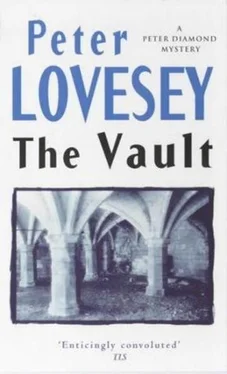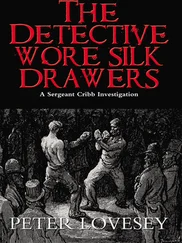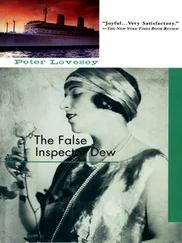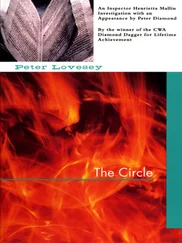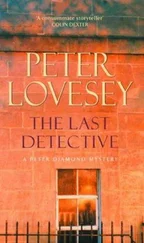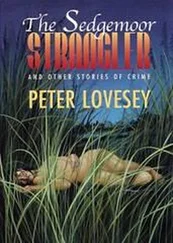"People have killed for less. It depends what price they put on a human life."
Sergeant Leaman looked around the door and Diamond beck' oned to him to come over. He had brought Joe Dougan's coffee. He said in confidence to Diamond, "Those phone numbers, sir-the local calls Peg Redbird made on the day she died. We've traced them now. The first was to a pub in Larkhall."
"The Brains Surgery?"
"Right. And the second was a private number, a Mr E. Tanner-Jones. It has to be Uncle Evan, doesn't it?"
"Got the address?"
"One Tree Cottage, Charlcombe Lane."
"Any previous?"
"Nothing known."
"What time is it now?"
"Ten to three."
"We'll pick him up pronto."
Leaman asked after a pause, "Do you mean you want to come, sir?"
"Try and keep me away." He stood up.
Joe Dougan let out a breath that seemed to come from the depth of his soul.
Diamond glared.
Joe said, "I was blowing on the coffee." After some hesitation he asked, "Have you finished with me?"
"For the present," said Diamond. "I'm going to ask one of our people to book you into a hotel for the night. It won't be the Royal Crescent, but it should be comfortable."
* * *
ON THE drive, he told Leaman about Mary Shelley's sketchbook. "What a gift for a forger-sheets and sheets of paper dating from the first years of the nineteenth century."
"Is that what happened to it?"
"How would I know? I'm speculating. If they're working in ink or watercolour they need genuine old paper, sheets of the stuff. It was made differently in those days, with rag, or something. No good using modern paper. It has to pass all the dating tests. Larger sheets would be hard to come by. So you can imagine the use a forger could make of an entire sketchbook."
"Peg Redbird?"
"As the forger? No, she simply found the sketchbook in the writing box and put it on sale."
"Someone else bought it for the paper, to fake pictures on?"
"That's the way I'm thinking. Some clever forgeries have been unloaded on the art market in Bath."
"The Blakes?"
"Or what passed for Blakes. Councillor Sturr owns one and Minchendon had two. There may well be others on the walls of smart houses in the area. I'm hoping to get a sight of an art forger's studio."
"At this cottage?"
"It has to be somewhere. That afternoon when Peg got her hands on the pictures from Si Minchendon's, she spent a lot of time on the phone to galleries and museums and I can only think she was trying to find out if Blake ever painted a Frankenstein series. He didn't. At the end, she phones two local numbers, the Brains Surgery, where Uncle Evan hangs out, and One Tree Cottage. Why? We'll find out presently, I hope."
* * *
IT TURNED up unexpectedly in another half-mile-unexpectedly because the building was no cottage in the ordinary sense of the word. Set back at the end of a gravel drive in an isolated stretch of Charlcombe Lane, it was a modern two-storey house in the Georgian style, built the expensive way in the local stone, not the reconstituted sort. Gables, sash windows, portico, coach-lamps, conifers in white tubs.
They saw it through closed wrought-iron gates equipped with an entry-phone. Leaman drew up alongside the grille and put down the car window.
"Do we say who we are?"
"Let's see who we get."
A woman's voice announced, "Mr Tanner-Jones isn't at home."
Diamond muttered an obscenity, then leaned across Leaman and said genially, "That's all right, my dear. We're the police. We'll talk to you."
"I'm only the cleaner."
"But you know how to press the button that opens the gates."
It got them through the gate. She had the front door open before they were out of the car, a nervous-looking young woman wiping her hands on a red overall. "I can't help you."
"You can," said Diamond. "You're just the right person. What's your name?"
"Linda."
"We won't keep you long, Linda. Shall we do this inside?"
The Tanner-Jones residence was as fine inside as out. They were standing on an Afghan carpet in a hall with an antique grandfather clock and a huge celadon-ware vase containing pampas grass.
"Out for the day, is he?" Diamond asked.
"He often is when I come in to do the house," she said. "I'm not supposed to let anyone in."
"But you wouldn't obstruct the police in the course of their duty, would you? That's against the law. Where's the art room?"
"The what?"
"Art room, studio, whatever he calls it. As the cleaner, you should know."
Linda shook her head. "There's nothing like that."
Too easy, Diamond decided. He would have to think in terms of hidden rooms, something in the attic, or outside in the garden. "How does he relax, then? I thought he was a painter."
"I don't know anything about that."
"What's his job?"
"I don't know if he has one."
"How does he live so well if he doesn't work?"
"I couldn't say. He must have been left some money, or won the lottery, or something."
"You don't mind if we look around?" He didn't wait for her answer, but opened a door and stepped into a large sitting room with a tan-coloured leather suite. The pictures on the wall were modern abstracts; nothing remotely resembled a Blake. "What does he look like, your boss?" he asked Linda. "Is there a picture of him anywhere?"
"I've never seen one. He's tall and thin. Mostly he dresses in casual clothes, jeans and things. He has long hair, really long for a bloke, I mean, in a pony-tail, and glasses."
It was Joe's description of Uncle Evan, near enough.
"He hasn't gone missing, has he?" Linda asked anxiously.
"I hope not."
Diamond strolled into another room, a dining-room with walnut chairs and oval table. The taste in art still favoured the twentieth century. The end wall had a huge Frink charcoal drawing of horses. "Does he entertain much?"
"I only come in two afternoons a week," said Linda.
She didn't seem aware of the ambiguity, and he didn't make anything of it. She was too soft a target. "We'll look upstairs."
"I haven't done the upstairs yet," Linda said.
She tagged along while they looked into five bedrooms, each with its en suite bathroom. The most lived-in still told them nothing except that Tanner-Jones owned about twenty pairs of designer jeans and read John Updike and GQ. Halfway along the landing was a hatch to the space under the roof. "Is there a room up there?"
"I've no idea."
"You've never been up to clean it?"
"No. It's not on my list."
Diamond nodded to Leaman, who reached up, released the catch and pulled down the hatch door. A light came on automatically. A folding ladder was attached to the hidden side of the door. With the sense of occasion of an astronaut bound for a new planet, Diamond climbed upwards.
He found himself standing among cardboard boxes, rolls of wallpaper and lampshades. He came down like the manager of the national football team after it has lost six-nil to San Marino.
They went into the garden, opened the sheds and found only tools, deckchairs and grass-seed.
"I've seen all I want of this sodding place."
They returned to the car. "Where to, sir?" Leaman asked as they got in.
"Just get us out of here," said Diamond. "No. Hold it." He stared along the gravel drive. The automatic gates had opened and a black sports car was entering. It braked. There was a moment's hiatus. Obviously the driver had spotted their car in front of the house. Then he reversed with a screech of tyres and headed back along the road.
Leaman didn't need to be told what to do next.
"FEAR NOT THAT I shall be the instrument of future mischief. My work is nearly complete."
Читать дальше
